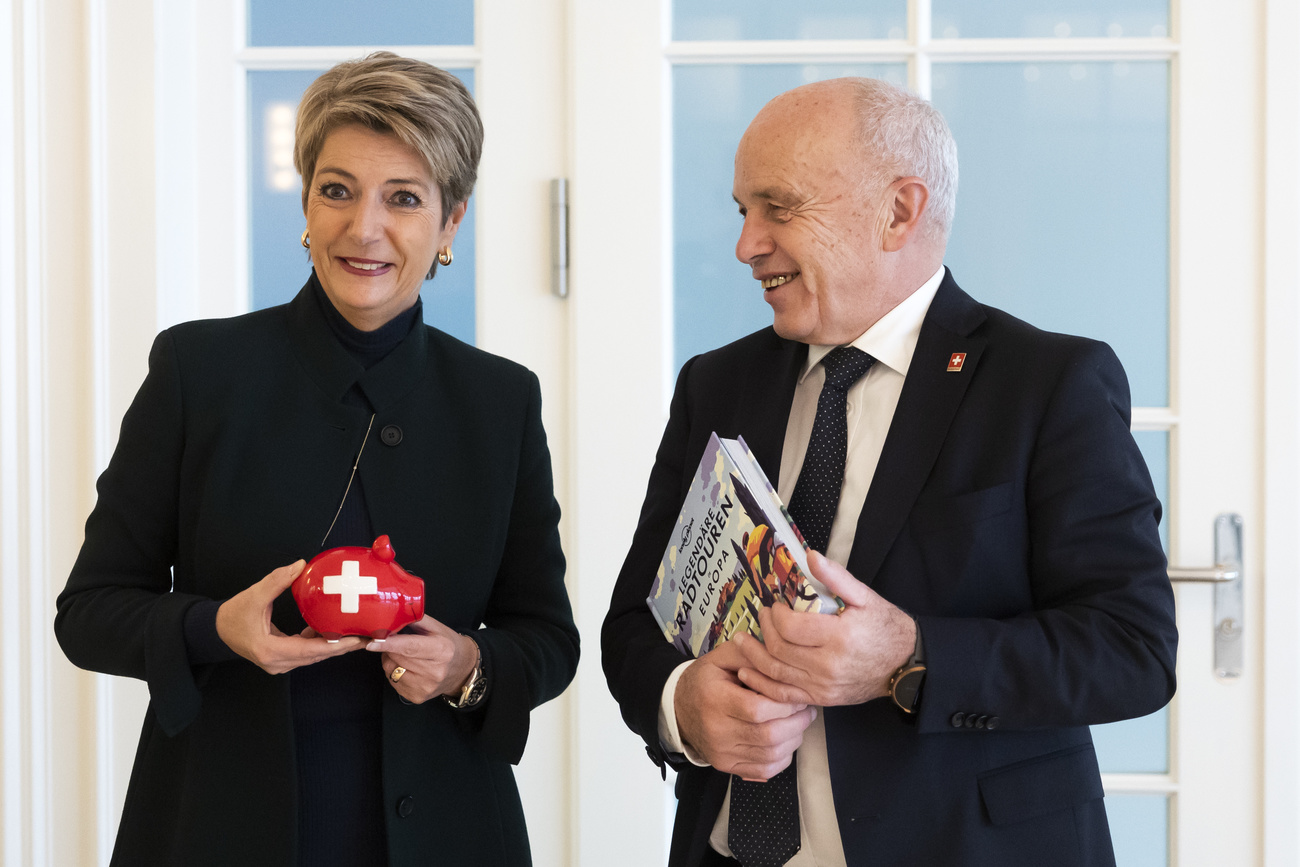
Swiss government wants spending cuts across the board

Finance Minister Karin Keller-Sutter says spending cuts are inevitable next year to assure a way back to a balanced budget in Switzerland.
For the first time since 2005, the government closed last year with a higher deficit than would have been permissible for economic reasons. The deficit amounts to CHF1.6 billion (CHF1.7 billion).
Speaking at a news conference on Wednesday, Keller-Sutter said the government agreed that measures are necessary as the outlook remains bleak.
“As the new finance minister, I cannot present you with a surplus, quite the contrary,” Keller-Sutter said.
In addition to the higher than budgeted extraordinary expenditures due to the Corona pandemic (CHF3.3 billion) and the Russian invasion of Ukraine (CHF0.7 billion), the deficit in 2022 was also much higher than estimated in the ordinary budget.
One reason was significantly lower income from withholding tax.
Across the board
The financing deficit in 2022 was CHF4.3 billion. But the shortfall only has to be compensated for in subsequent years with spending cuts.
+ What are the consequences of government overspending?
The budget figures updated at the end of January show a structural deficit of CHF2 billion for 2024, Keller-Sutter said. Compliance with the debt brake is central, she added. “Our stable fiscal policy has allowed us to weather various crises.”
In a first step announced last month, the mandatory financial contribution to the prestigious Horizon Europe research programme is to be cut from the budget, while army expenditure will be increased and tax brakes for electric vehicles will be suspended.
The remaining funding deficit of about CHF500 million is to eliminated with across-the-board spending cuts, including job losses. Spending on education, research, security (but not the armed forces), foreign relations and agriculture are also likely.
Some CHF600 million are to be saved by spending cuts for social welfare, finances and transport.
“These measures are certainly painful, but necessary,” Keller-Sutter said. Overall, the government’s ordinary expenditure would grow by around 3% in 2024 despite these adjustment measures.
It’s up to parliament to set priorities, according to Keller-Sutter.

In compliance with the JTI standards
More: SWI swissinfo.ch certified by the Journalism Trust Initiative






























You can find an overview of ongoing debates with our journalists here . Please join us!
If you want to start a conversation about a topic raised in this article or want to report factual errors, email us at english@swissinfo.ch.